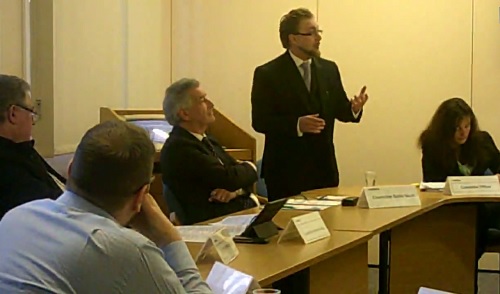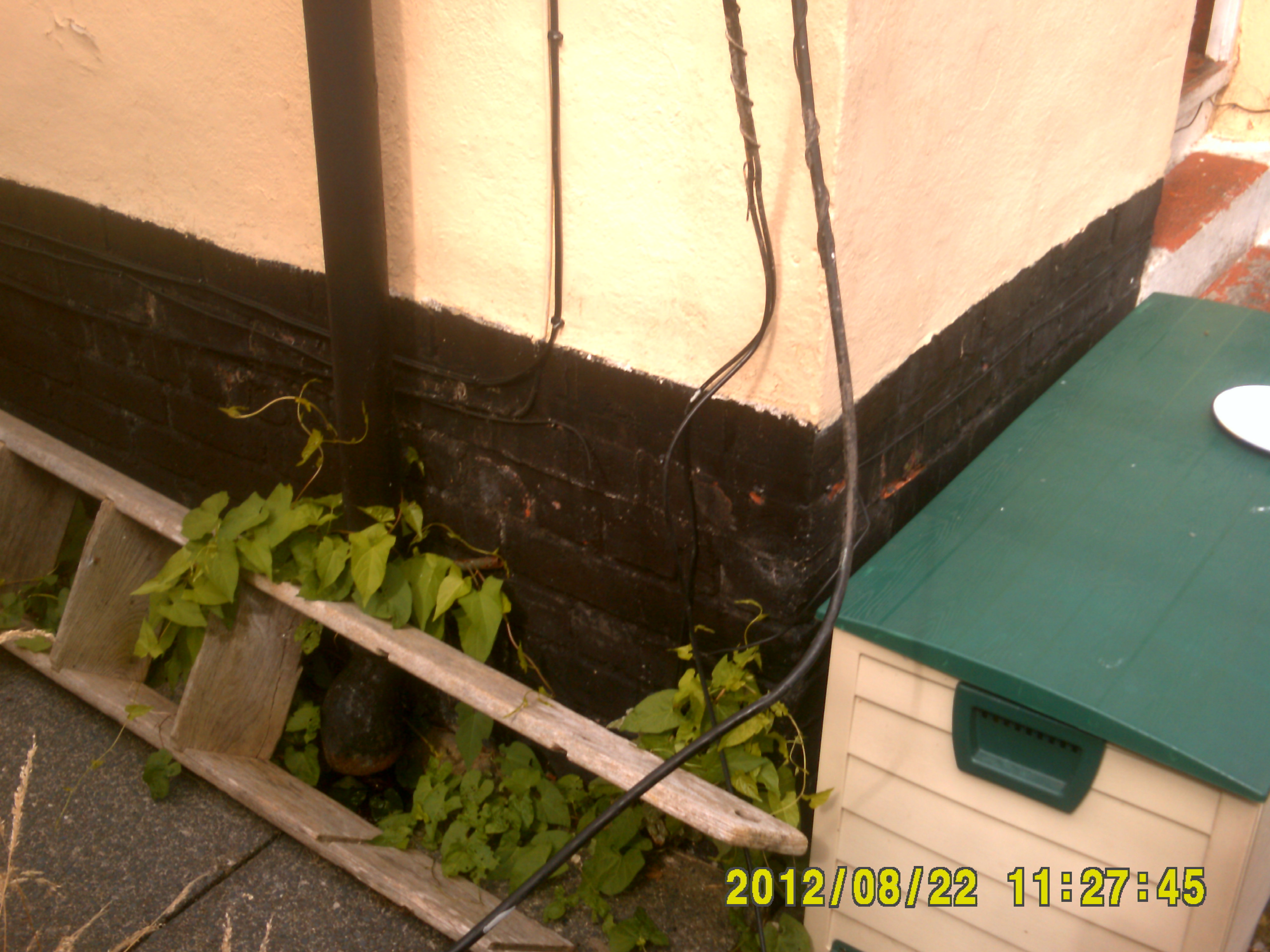Mark Latham of Wirral Street Pastors tells Wirral’s councillors graphic stories about Birkenhead’s boozy night life

Mark Latham from Wirral Street Pastors told councillors on Wirral Council’s Licensing Act 2003 Committee about his experiences of Birkenhead’s night life and alcohol (19th March 2014)
Please accept YouTube cookies to play this video. By accepting you will be accessing content from YouTube, a service provided by an external third party.
If you accept this notice, your choice will be saved and the page will refresh.
The presentation by Wirral Street Pastors starts at 1:39 in the video above.
Councillors on Wirral Council’s Licensing Act 2003 Committee yesterday listened to a brief talk from a Mark Latham of Wirral Street Pastors about what Wirral Street Pastors do on a Friday evening and Saturday morning in Birkenhead. Mr. Latham said that he would give a quick overview of what Wirral Street Pastors do and what they are and hoped from that that the councillors would glean valuable information.
He said that his role as coordinator was to try to develop a better relationship between local government, Wirral Council and the police. So far he had had meetings with the Police and Crime Commissioner for Merseyside (Jane Kennedy), Rt Hon Frank Field MP, Rt Hon Esther McVey MP, Cllr Ian Lewis and Emma Degg (a couple of times). Mr Latham said that these meetings were to bridge the gap between what the Wirral Street Pastors do and what they see.
He explained that street pastors started ten years ago when they saw a need that people in the night-time economy were drinking, being drunk and that there were lots of problems relating to those things such as fighting, antisocial behaviour, violence and crime in general. Mr Latham said that Wirral Street Pastors did the same as what other street pastors across the country did and that they were out on Friday night around Birkenhead patrolling the streets, making sure people were safe and making sure particularly vulnerable individuals got home safely.
The example of a young girl on her own was given and he said that one of his team (which were made up of female and male individuals) would stay with them and either ring their parent or a friend or get them into a taxi to make sure they get home safely. Wirral Street Pastors also gave out free flip-flops to ensure that women who had taken their shoes off don’t stand on broken glass or the general filth that’s on the streets.
In addition to free flip-flops Wirral Street Pastors also give out bottles of water and space blankets to the homeless and people who’d had one too many to drink. The aim of this was to hydrate them so that the taxis would take them. He said that some people were so drunk that taxi drivers refused them rides as the taxi drivers were concerned that these people would throw up in the back of their taxi.
Mr Latham said that the average cost to the National Health Service of a drink related incident was £4,000. He said every pair of flip-flops that they gave out meant that that person wasn’t standing on broken glass requiring an X-ray which would cost the taxpayer money. For every fight that the Wirral Street Pastors had broken up, every antisocial behaviour incident that was simmered down put less of a strain on police resources.
He said that they had a standard operating procedure with the police that allowed Wirral Street Pastors to engage with people allowing the police to concentrate on what they needed to do. Mr Latham said the Wirral Street Pastors dealt with the homeless who they gave space blankets too as well as signposting them to the Wirral Churches Ark Project, ARCH Initiatives and other agencies.
Mark Latham gave an example of somebody having their head stamped on a fortnight ago was given, Wirral Street Pastors stayed with him until the ambulance turned up and that he was fortunate that Wirral Street Pastors had been with him “because he would have been dead within about half an hour” because he was losing consciousness.
He told councillors about another person who was “roaming round”, who was “suffering from mental illness” that the Wirral Street Pastors “got back on his medication” and dealt with his needs. Mr Latham said that most of the time that the Wirral Street Pastors were just there to make sure people are safe and to be a listening ear. He referred to Cllr Ian Lewis coming out with the Wirral Street Pastors recently and that Cllr Ian Lewis could relate his experiences of that to the other councillors on the Licensing Act 2003 Committee. Mr Latham said that the Wirral Street Pastors were engaging with the community, the neighbourhood and the people who were out in the night-time economy. He said that there was much more to it than he had outlined, but he was happy to take questions from councillors.
The first question was from Cllr Harry Smith asking if the Wirral Street Pastors were connected to a church and whether they wore any special gear when they were out at night. Mark Latham replied that they had a uniform that they had to wear which was a DayGlo duotone blue jacket. He said that it was a condition of their insurance that they had to wear these uniforms but also so that they were identifiable and that the police knew who they were. He said that the Wirral Street Pastors are a Christian organisation. He said there were various inter denominational churches across the Wirral that were involved.
Mr Latham said that the Wirral Street Pastors were the only recognised ministry by the police and that the reason why it was recognised was because it wasn’t proclamation, that the Wirral Street Pastors didn’t go out preaching but they were just there to help people. He added that the Wirral Street Pastors were a highly trained group of individuals that had “police training”.
Cllr John Salter asked who the Wirral Street Pastors got funding from? Mark Latham answered that they don’t and that all volunteers paid £300 each to do it. Although it was supported by the Home Office, their standard operating procedures were “signed off by Scotland Yard and the Home Office” that that was the entirety of their involvement. He said that the national statistics were fed back regularly to David Cameron, but that the only funding they got was what they received from individuals as well as grants from Christian organisations.
Cllr Andrew Hodson asked how many Wirral Street Pastors there were in total and how many were out on the streets? Mark Latham answered that there were fifteen. He said that they went out every Friday night in teams of four (two men and two women) starting at half past ten at Charing Cross and finish at four.
If you click on any of the buttons below, you’ll be doing me a favour by sharing this article with other people.
